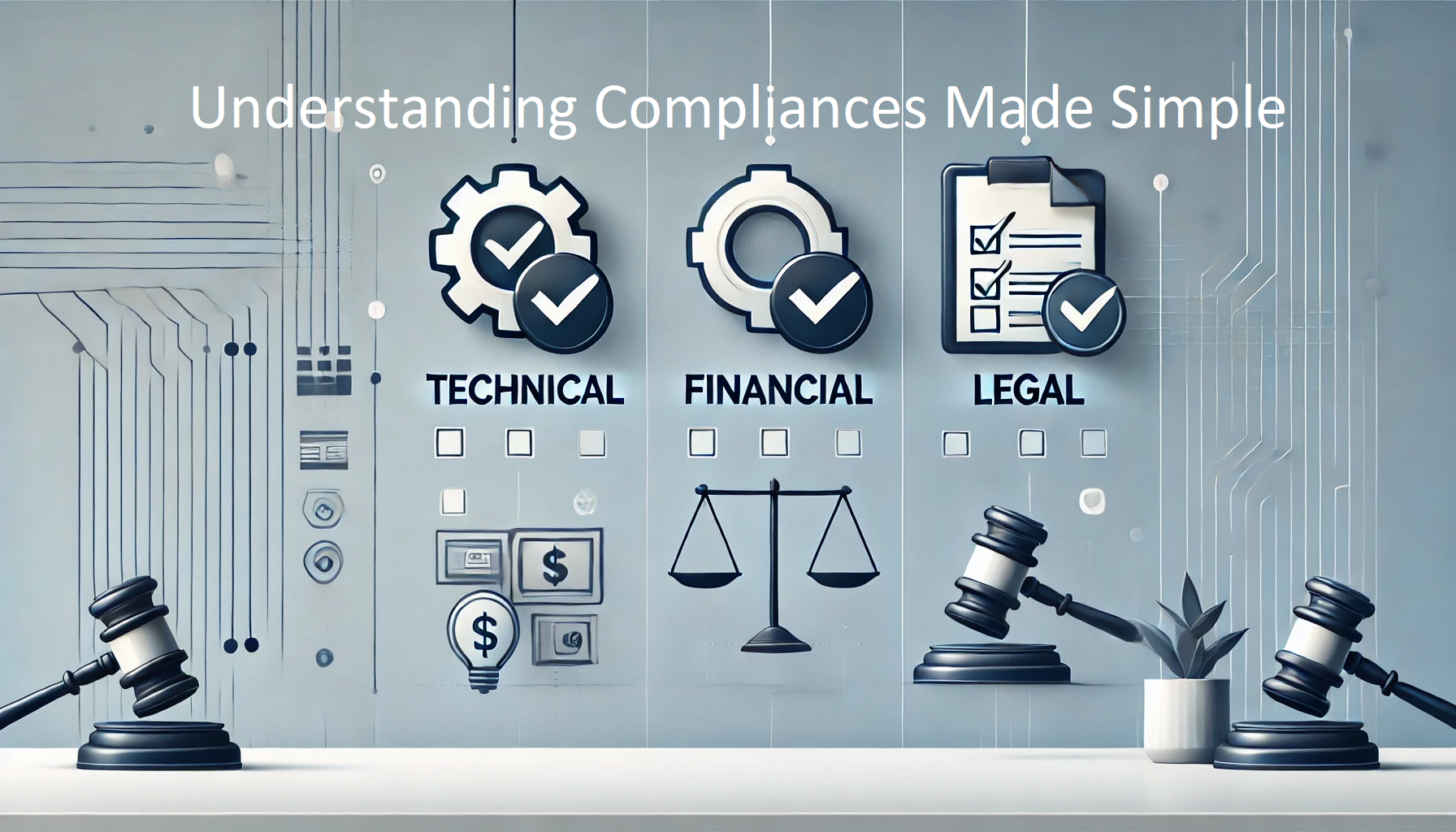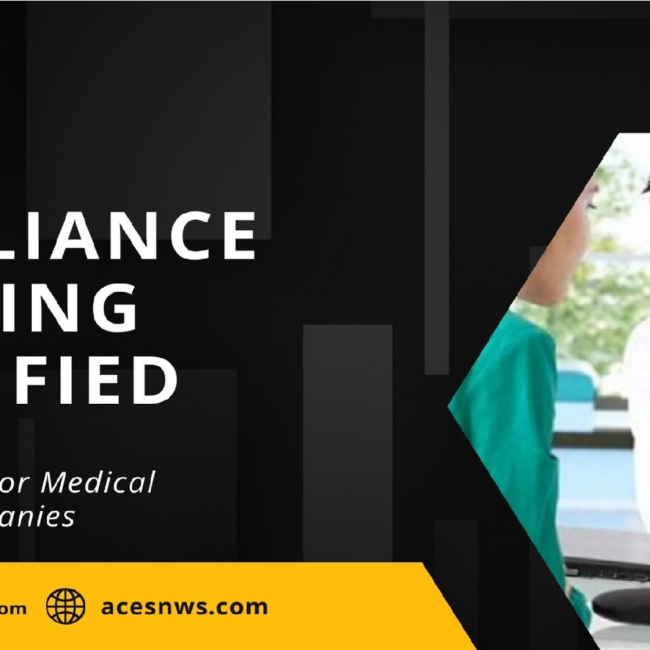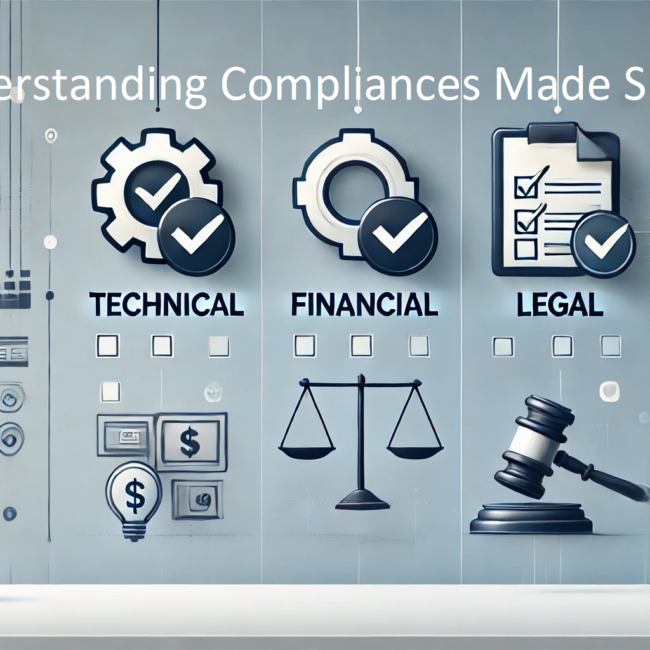
10 Types of compliances for Medical Equipment or devices companies for tender process
For medical equipment or devices companies, compliance during the tender process is critical to ensure eligibility and avoid disqualification. Below are the key types of compliance that such companies typically need to fulfill:
1. Regulatory Compliance
- Medical Device Rules, 2017 (India): Compliance with India’s regulatory framework for medical devices, including product registration, licensing, and import regulations.
- Central Drugs Standard Control Organization (CDSCO): Products need approval or registration with CDSCO, the national regulatory body for medical devices.
- Drugs and Cosmetics Act, 1940: If applicable, companies must comply with the provisions related to the import, manufacturing, and distribution of medical devices.
2. Product Certification Compliance
- ISO Certifications:
- ISO 13485: Quality management systems for medical devices.
- ISO 9001: General quality management systems.
- CE Marking: For medical devices to be sold in Europe, indicating conformity with European Union health, safety, and environmental protection standards.
- FDA Approval: Required for exporting medical devices to the United States.
- BIS Certification: Certain medical devices may require certification from the Bureau of Indian Standards.
3. Quality Standards Compliance
- Good Manufacturing Practice (GMP): Adherence to guidelines ensuring that products are consistently produced and controlled according to quality standards.
- Indian Public Health Standards (IPHS): Specific to public healthcare services in India, ensuring devices meet the healthcare needs and safety requirements of hospitals.
4. Environmental Compliance
- E-Waste Management Rules: For electronic medical devices, proper disposal and recycling protocols must be followed to minimize environmental impact.
- Hazardous Waste Management: Compliance with hazardous waste management regulations if applicable to the disposal of medical equipment.
5. Tax and Financial Compliance
- GST Compliance: Companies must have a valid GST registration and comply with the Goods and Services Tax (GST) rules in India, including filing returns.
- Income Tax Compliance: Ensuring that all applicable taxes are paid, and financial documents (e.g., audited statements) are provided during the tender process.
- Earnest Money Deposit (EMD) & Performance Guarantee: Submission of financial guarantees or deposits as a commitment to fulfilling tender terms.
6. Workplace and Safety Compliance
- Occupational Health and Safety (OHS): Companies must comply with occupational safety regulations for their employees in manufacturing or handling medical equipment.
- Biomedical Waste Disposal Rules: If applicable, safe disposal of waste generated from the usage of medical equipment.
7. Ethical Compliance
- Anti-Bribery and Anti-Corruption Compliance: Vendors must adhere to ethical guidelines that prohibit bribery or corrupt practices in the tendering process.
- Fair Trade Practices: Ensuring transparency in pricing, quality, and delivery, as well as avoiding monopolistic or anti-competitive behavior.
8. Legal and Contractual Compliance
- Indian Contract Act, 1872: Legal binding contracts between the company and government agencies or hospitals must be adhered to.
- Intellectual Property (IP) Compliance: Medical devices must not infringe on the patents or trademarks of other entities.
- Liability and Indemnity Agreements: Vendors need to comply with indemnity clauses, often to protect buyers from losses or damages due to device failure.
9. Documentation Compliance
- Technical Data Sheet: Vendors are often required to submit detailed product specifications, technical features, and operational manuals.
- Warranty & Service Contracts: Compliance with after-sales service commitments, including warranties and maintenance contracts.
- Manufacturer Authorization Form (MAF): For authorized dealers, providing documentation from the original manufacturer authorizing them to supply the product.
10. Social Compliance
- Corporate Social Responsibility (CSR): Some tenders may require compliance with CSR activities, particularly in public health sectors.
- Labor Law Compliance: Ensuring that all labor laws regarding minimum wage, working hours, and worker rights are followed during manufacturing and operations.
Medical equipment companies need to ensure that all these compliances are adhered to, based on the specific requirements of the tender and geographical location.
Certainly! Here’s a categorization of the compliances listed above based on Technical, Financial, Regulatory, and Expirable categories.
1. Technical Compliance
These relate to product quality, standards, and technical specifications that medical equipment companies need to adhere to:
- Product Certification Compliance
- ISO 13485 (Quality management systems for medical devices)
- ISO 9001 (General quality management systems)
- CE Marking (European Union health and safety standards)
- FDA Approval (for export to the United States)
- BIS Certification (Bureau of Indian Standards)
- Quality Standards Compliance
- Good Manufacturing Practice (GMP)
- Indian Public Health Standards (IPHS)
- Documentation Compliance
- Technical Data Sheet (Product specifications and manuals)
- Warranty & Service Contracts
- Manufacturer Authorization Form (MAF)
- Workplace and Safety Compliance
- Occupational Health and Safety (OHS)
- Ethical Compliance
- Anti-Bribery and Anti-Corruption Compliance
- Fair Trade Practices
2. Financial Compliance
These pertain to taxes, financial guarantees, and economic obligations:
- Tax and Financial Compliance
- GST Compliance (Goods and Services Tax registration and returns)
- Income Tax Compliance
- Audited Financial Statements
- Earnest Money Deposit (EMD) & Performance Guarantee: Financial guarantees submitted during the tender process to show commitment.
- Fair Trade Practices (related to pricing and transparency in financial transactions)
3. Regulatory Compliance
These relate to laws and regulations imposed by government bodies, both national and international:
- Medical Device Rules, 2017: Indian regulatory framework for medical devices.
- Central Drugs Standard Control Organization (CDSCO): Device approval and registration.
- Drugs and Cosmetics Act, 1940: Compliance with provisions related to medical devices.
- Legal and Contractual Compliance
- Indian Contract Act, 1872
- Intellectual Property (IP) Compliance
- Liability and Indemnity Agreements
- Social Compliance
- Corporate Social Responsibility (CSR) (if applicable)
- Labor Law Compliance
4. Expirable Compliance
These require periodic renewal or updates due to their time-bound nature:
- Product Certification Compliance
- CE Marking (needs periodic renewal, depending on EU regulations)
- FDA Approval (subject to regulatory updates or reapproval)
- ISO Certifications (e.g., ISO 13485 and ISO 9001 need periodic audits and renewal)
- BIS Certification (may have an expiry, depending on product type)
- Regulatory Compliance
- Medical Device Rules, 2017 (Licenses may have an expiry date and require periodic renewal)
- CDSCO (Approvals may have expiry, especially for import licenses)
- Earnest Money Deposit (EMD) & Performance Guarantee: Financial instruments have an expiry or maturity date.
- Warranty & Service Contracts: Expiry based on agreed contract duration.
- Environmental Compliance
- E-Waste Management Rules (Certification and practices may need to be updated regularly)
- Hazardous Waste Management (Compliance practices need periodic renewal or audits)
By categorizing the compliance requirements this way, medical equipment companies can better manage and track which obligations are ongoing, financial, regulatory, or expiring over time.


